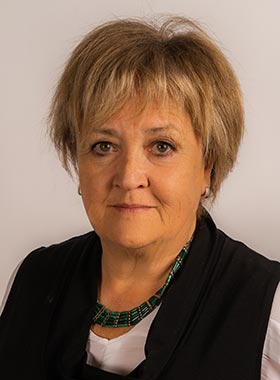
These changes are intended to ensure that all New Zealanders, regardless of ethnicity, location and personal circumstances, will have the same access to care across the country.
Nurses will doubtless applaud and support this goal.
Scant detail has been released on the proposed changes to community-based services and the current private business model of general practice or aged residential care services. Like hospitals, all these areas are experiencing significant work pressure and nurses are currently pushed to the limits to maintain patient safety and clinical quality.
Workforce decisions
Regardless of structural change the success of health service delivery will rest with the issue of workforce. I am hopeful that there will be major changes in how workforce decisions are made and funded.
As a former chair of the nursing advisory group to Health Workforce NZ, I can recall multiple pieces of well-researched advice that were offered on behalf of that committee.
The advisory group set the goal several years ago of ensuring the number of Māori nurses in the nursing workforce achieved equivalence with the percentage of Māori in our population.
We produced evidence showing that a third of all nurses were self-funding their postgraduate education.1 I have seen recent anecdotal evidence that the gap between those wanting to study and those being funded has further widened.
We offered solutions to the fact that very few nurse graduates choose aged care as a career destination despite the desperate need in that area.
I have seen no tangible response to any of this advice with the exception of some minor increase in the investment in nurse practitioner training.
Recently, New Zealand research showed a clear relationship between the level of postgraduate education and the level of practice across a number of domains regardless of role title.2 Investment in education is a core aspect of releasing the potential of nursing yet – after many years of a supposedly focused workforce development strategy – I can see little change in investment or support for the largest health workforce in the country.
I have spent 50 years in the profession, wondering why it is so difficult for us to be taken seriously.
Canadian journalists Bernice Buresh and Suzanne Gordon made some pertinent observations about nurses – their personal and public presentation, alongside their extreme reluctance to speak of their work in public.3
As journalists, they noted that despite frequently seeking a nursing opinion they were constantly avoided, or told by nurses that they could not speak or did not wish to speak due to patient confidentiality or a ban on nurses speaking by their employing organisation.
Certainly we can never breach patient privacy but there is no reason not to express a professional generic opinion relevant to the matter under discussion.
First-hand experiences
This can be done without breaching privacy or organisational rules. We can share our first-hand experiences of the consequences of child poverty on child health, of the consequences when funding is cut to shelters for the homeless or women fleeing domestic violence.
We can always speak of what all patients encounter in prolonged intensive care unit stays and the exquisite nursing work required to maintain the stability and sanity of such patients and their families.
Yes it is risky to publicly condemn our employing organisation but we could be a great deal more strategic about briefing our professional organisations and academic colleagues who can safely do this on our behalf.
Jenny Carryer, RN, Dip Counselling, PhD, FCNA(NZ), MNZM, CNZM, is professor of nursing at Massey University and executive director of the College of Nurses Aotearoa.
References
- Postgraduate study funding: Are we better off?. (2016, Aug/Sept). Nursing Review, 22.
- Wilkinson, J. A., Carryer, J. & Budge, C. (2018) Impact of postgraduate education on advanced practice nurse activity: A national survey. International Nursing Review. doi:10.1111/inr.12437.
- Buresh, B., & Gordon, S. (2000). Presenting yourself as a nurse. In B. Buresh & S. Gordon (Eds.), From silence to voice: What nurses know and must communicate to the public (pp. 49-68). Canadian Nurses Association.


